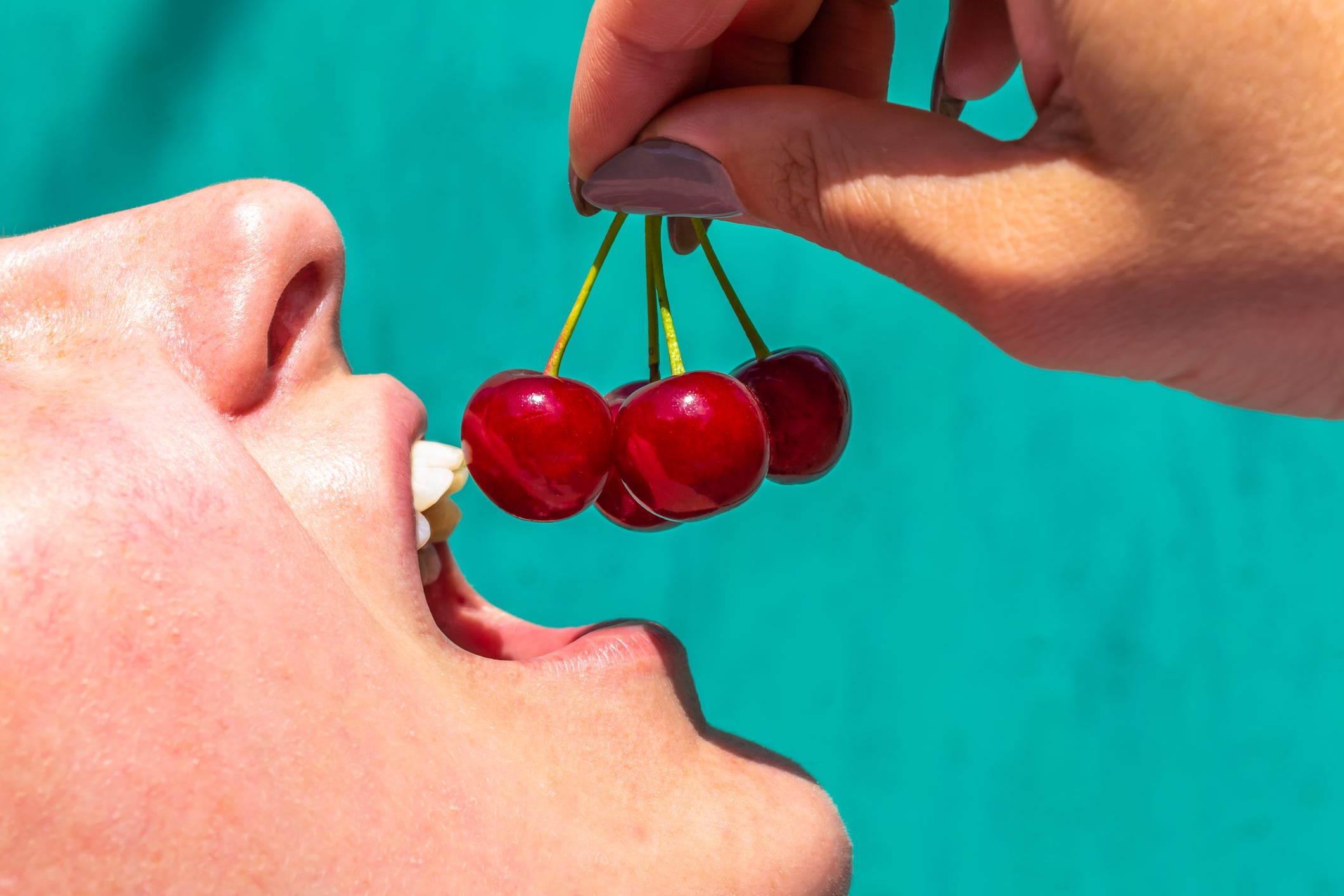A few studies have also reported beneficial effects on arthritis, diabetes, sleep, cognitive functions and possibly mood.
These benefits may be attributed not only to the extract’s polyphenolic content but also to its broader phytocomplex, according to the researchers from the University of Turin and the University of Rome, Italy.
“Cherries are rich in vitamins, carotenoids and essential fatty acids, which are not part of the polyphenol family but play significant roles in the overall health benefits of the fruit,” they wrote in the journal Nutraceuticals.
“Furthermore, the presence of organic acids like citric and malic acids, as well as various minerals, also adds to the complexity of the cherry’s phytocomplex. These components likely work together synergistically, [however] more studies are necessary to determine how each of these molecules contributes to the extract’s effects.”
The bioactive potential of cherry extracts
Cherries are a rich source of polyphenols and anthocyanins, compounds for their antioxidant and anti-inflammatory properties.
There are two main types of cherries used in cherry extract: sweet cherries and tart cherries. Tart cherries are the most studied, perhaps because they contain a greater number of total polyphenols.
However, the researchers note that the bioavailability of many polyphenols is limited due to gut microbiota metabolism, which may limit their efficacy in supplements.
“The collection of microbes living in the intestine modifies and/or degrades (poly)phenols into metabolites, which exhibit a different bioaccessibility and may become available (or not) to the host,” the wrote. “In this regard, there is still little knowledge on how the gut microbiota influence the bioavailability of cherry (poly)phenols and vice versa.”
The aim of the review was to evaluate the effects and tolerability of cherry extract observed in clinical studies, while highlighting the differences in effectiveness related to the type of extract, formulation and dosage.
Considering the evidence
The researchers conducted a systematic search of the Cochrane Register of Controlled Trials and MEDLINE databases for studies published between 1970 and 2025. Search terms included “tart cherries,” “sweet cherries,” “cherry concentrate,” “dietary supplement,” “functional food,” “clinical trial,” and “human.”
Based on their review, they concluded that the evidence supporting cherry extract supplementation is “quite promising,” particularly when the polyphenol content ranged from 300 to 600 mg per day and anthocyanin intake ranged from 250 to 500 mg per day.
While the clinical evidence suggests that both sweet and tart cherries hold potential benefits, tart cherry extract appeared to be particularly effective.
Cherry extract and cardiovascular health
According to the studies considered, cherry extract may play a role in preventing cardiovascular disease by lowering blood pressure and uric acid concentrations, and potentially improving blood sugar levels. However, more research is needed in this area, the researchers noted.
“Despite some evidence suggesting that tart cherry supplementation may moderate the glycemic response to a meal and impact certain inflammatory cytokines, larger and longer research studies are needed to confirm these preliminary finding,” they explained.
Research has also shown that cherry extract supplementation may reduce systemic inflammation and oxidative stress, which are associated with increased risk of heart disease.
This may be achieved by reducing pro-inflammatory cytokines, which are key players in inflammatory responses.
Cherry extract and sports performance
Cherry extract supplementation also has exhibited potential as a sports supplement, with the researchers finding benefits for muscle recovery, improvements in performance and pain management.
Multiple studies demonstrated a reduction in muscle damage following cherry extract ingestion, with those involved in strength training seeing faster recovery times and significantly lower pain perceptions.
While not all studies noted performance improvements, those focused on aerobic activity such as cycling and endurance running predominantly reported significant benefits.
The researchers noted that cherry juice concentrate may be more effective than powders when used as an ergogenic aid, given that it can enhance carbohydrate utilization during exercise.
“Despite the fact that juice concentrate can be diluted in water to improve the palatability of the functional beverage, its sugar content helps increase muscle glycogen storage in aerobic sports, contributing to the improvement in exercise performance,” they explained.
Cherry extract and sleep
Since cherries contain melatonin, many studies have focused on their potential ability to aid sleep. The review found that extracts, particularly from tart cherries, generally improved sleep, potentially by increasing melatonin levels.
This has been demonstrated in trials in both younger and older adults, with one pilot study demonstrating that tart cherry juice supplemented with procyanidin B-2 increased total sleep time and sleep efficiency, while another with cherry juice concentrate showed significant increases in time in bed, total sleep time and total sleep efficiency.
“Different studies showed that a cherry-enriched diet ameliorates sleep quality, increasing the concentrations of pro-somnogenic cytokines (IL-1β, tumor necrosis factor-a (TNF-α), and IL-8), urinary 6 sulfatoxymelatonin (aMT6-s), and the antioxidant status in humans,” the researchers wrote.
Areas for future research
Overall, the review concluded that clinical evidence supports supplementation with cherry extract for cardiovascular health and sports performance and recovery, with emerging evidence suggesting it may be helpful for sleep, arthritis and blood sugar control.
However, future studies should focus on reporting the total polyphenol content used in cherry extracts in order to better quantify antioxidant content and how this relates to any observed benefits, the researchers noted.
“Long-term RCTs with large numbers of patients are still needed to confirm and better understand the efficacy of cherry extracts in sports and whether cherries can play a role in alleviating human disorders,” they wrote, adding that future studies are also needed to elucidate mechanisms of action and safety profiles.
Source: Nutraceuticals. doi: 10.3390/nutraceuticals5020012. “Health Benefits of (Poly)phenols from Cherries: A Review of Clinical Trials.” Authors: A. Colletti, et al.


